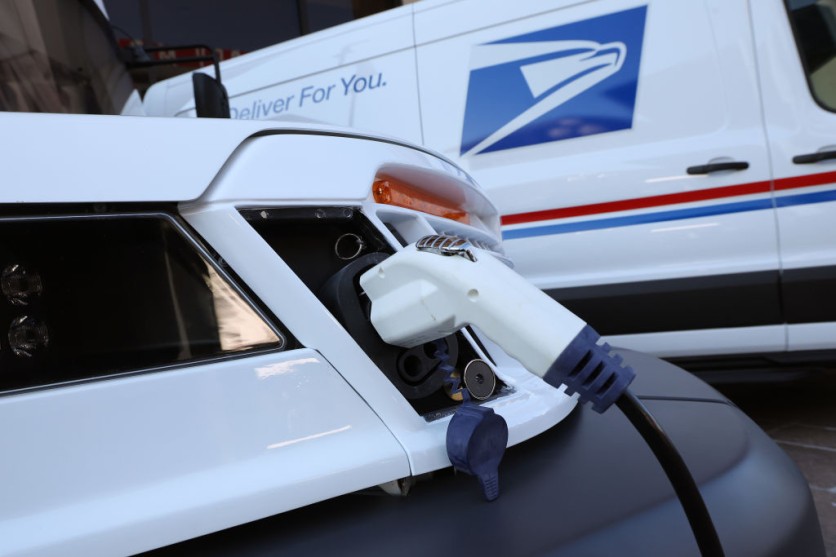Europe's electric vehicle adoption rate is reportedly lagging, as echoed by a decrease in EV market shares from 14.16% in 2023 to 12% or less since the start of 2024.
A drop attributed primarily to Germany's decision to abruptly stop subsidizing the purchase of electric cars on the continent's largest market at the end of 2023, from 14.16% last year to 12% or less since the beginning of this year.
In line with this, the European Automobile Manufacturers' Association's (ACEA) director general, Sigrid de Vries, voiced concerns wherein he stated that the 2035 deadline for Europe's full EV adoption is rapidly approaching.

(Photo: Kevin Dietsch/Getty Images) The United States Postal Service unveils two of its battery-powered vehicles at an event announcing its plan to implement electric vehicles at the Postal Service Headquarters on December 20, 2022, in Washington, DC.
According to the ACEA, less than 30% of Europeans say they intend to purchase an electric vehicle (EV), and more than half of them will not pay more than €35,000 (RM180,256) for a car-a price range at which few EVs are available.
Numerous automakers' CEOs also expressed concerns about Europe's adoption of electric vehicles (EVs). According to reports, the President of ACEA stated that while EU automakers have invested over €250 billion in electrification and are steadfastly committed to decarbonization, they cannot make this transition alone.
The president supports the idea that Europe should establish the prerequisites for market demand and competitiveness for electric automobiles.
These include infrastructure for hydrogen refilling and charging, an adequate supply of essential raw materials, improved financing availability, and market incentives. In other words, achieving Europe's green goals will require a comprehensive industrial strategy.
Read Also: Luxury Carmaker Aston Martin Will Continue Creating Petrol Cars Despite Growing EV Shift
Europe's EV Adoption
By the end of 2023, EV adoption surpassed the "tipping point" of 5% in 31 nations worldwide, which is regarded as the moment of widespread adoption.
However, just two-thirds of the 27 EU members have achieved this standard. The principal form of transportation for Europeans is the car, which contributes 15% of the continent's CO2 emissions.
Thus, if the EU is to fulfill its climate promises, it must make cars emissions-free. Norway, a non-EU member and significant gas and oil producer, is at the forefront of EV adoption.
Thanks to substantial tax incentives, electric vehicles, led by Tesla, accounted for 90% of new automobile registrations in Norway during the first quarter. The nation wants to cross the 100% threshold by 2025.
UK's EV Charging Boost
On a related note, the United Kingdom recently revealed its latest intentions to expedite building thousands of electric vehicle charging stations, demonstrating Europe's continued drive toward EVs.
The new plans' main feature is grants covering up to 75% of the expenses for state-funded schools, nurseries, and academies.
Additionally, several local government entities expect to receive over £14.2 million in financing for EV charging stations.
State-sponsored schools, universities, nurseries, and academies can apply for money sponsored by the Department of Transportation to enhance the charge station amenities for staff and visitors.
This is part of the scheme for workplace charging. Schools may be able to make money if they let the public use their charging stations.
Related Article: Illinois Announces $25.1 Million-Plans for EV Charging Infrastructure

(Photo: Tech Times)
ⓒ 2026 TECHTIMES.com All rights reserved. Do not reproduce without permission.




